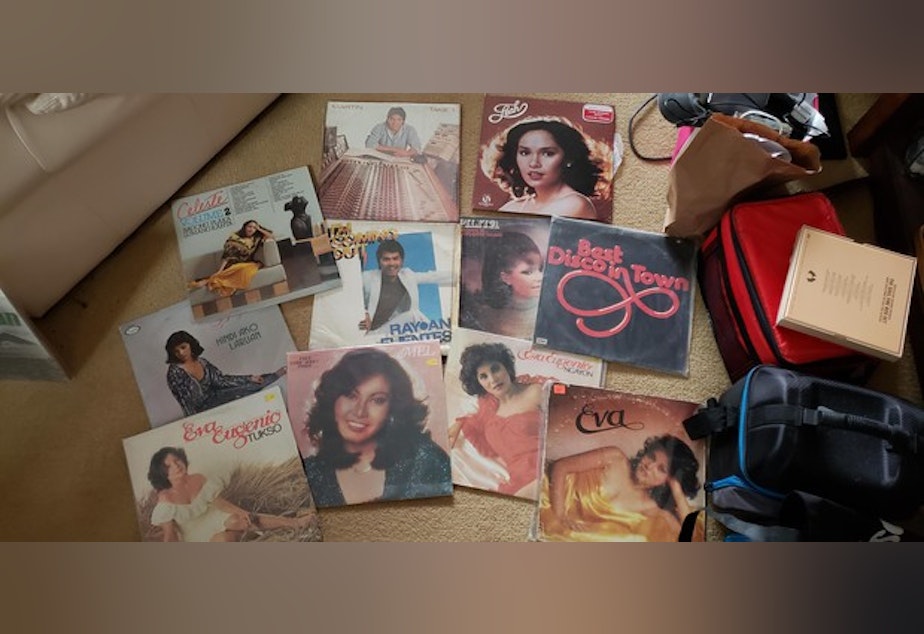Burning It Down With The Manila Sound

The Manila Sound of the '70sis best known for bands like Hot Dog, The Boyfriends, and Hagibis, but there are hundreds of artist who trace their influence to the period.
This week, as we think about what art can do in times of trauma, the sound of the club is taking on an entirely different ring.
In a year when Donald Glover took mainstream America to next-level social awareness through one ostensibly danceable beat, (BTW have you seen the Nigerian take?) we’re all thinking about our entertainments with an eye to their political and social tells.
So when we heard Spirit Mountain Casino is hosting a Manila Disco Fever next weekend, our ears perked right up.
Filipino dictator Ferdinand Marcos’ regime was a textbook case on authoritarian rule. During the period when Marcos declared martial law in response to student demonstrations, 3,200 people were killed by the government, tens of thousands of perceived enemies of the state were detained, and torture was common.
So what was the music of the times? A surprisingly sweet, fun style called the Manila Sound, that blossomed into a roaring disco scene.
Tigard resident Dolly Pangan Specht grew up Makati, a suburb of Manila, the youngest of 11 kids, attending a convent school by day and sneaking out with her sisters as a disco queen by night.
“I was a child of martial law,” Specht said.
But Specht said her family avoided political involvement and was more interested in music. Her brother was a movie producer and choreographer; another acted in comedy films. She credits her creative home environment with the moves that got her invited into dance clubs like Where Else, Stargazer and Rumors when she was 14 — still well underage.
Today, Specht is able to go through photo spreads of Manila’s glamorous ‘70s society scene and point out friends and acquaintances. (She's still rocking it with an azure tint in her black hair and a truly stellar powder blue manicure.) While she looks back with love at the '70s, she’s unsparing about the social and cultural mores that ruled the day.
“In Filipino culture, for the longest time, there was such a colonial mentality. Part of society that were such snobs — and I will say, myself included — with things that were local,” Specht said.
The bands she remembers getting the most respect and support were European or American acts — Earth Wind and Fire, Donna Summer, and the Village People — or Filipino bands who mimicked them.
But as the decade wore on, and the nation slowly shifted to a sense of itself, the music reflected change.
“It’s a completely opposite thing right now,” said Specht. “ so happy.”
Mikey Hortaleza, a Portland-area DJ, plays records as DJ Grim and specializes in hip-hop and obscure Filipino music.
“You have a lot of surpassed energy out there, oppressed energy,” Hortaleza said.
He draws a direct line between the ethos informing black music in America and the connection many Filipino musicians felt with those forms
“There’s a familiarity, escaping hard times," he said. "Not being able to do certain things and go out when you want to go out.”
At some point, Hortaleza said, the oppression takes people to that last nerve.
“The elders in hip-hop will tell you breaks is about getting down to that last nerve," Hortaleza said. "The terminology ‘break’ is in reference to ‘you broke.’ You take that same framework to expressing yourself at parties. They had to."
Looking at the the music through a record digger’s lens, this style of disco evolved from an era of pop called the Manila Sound — a more romantic crooner style that shared roots in Spanish and other Latin cultures. But by the mid-1970s this developed into a more disco sound with firm American roots. Influences were pouring in as American GIs visited the clubs, looking to dance.
“Describing Filipino culture can get really difficult,” Hortaleza said, with all the colonial and indigenous influences added in over the years. But he also notices clues about the homegrown recording industry, variations and glitches that can only happen in studios built by the musicians themselves in backyards and garages, using anything and everything they had at hand.
“To me,” Hortaleza said, “that’s the most Filipino thing about it.” [Copyright 2018 Oregon Public Broadcasting]



